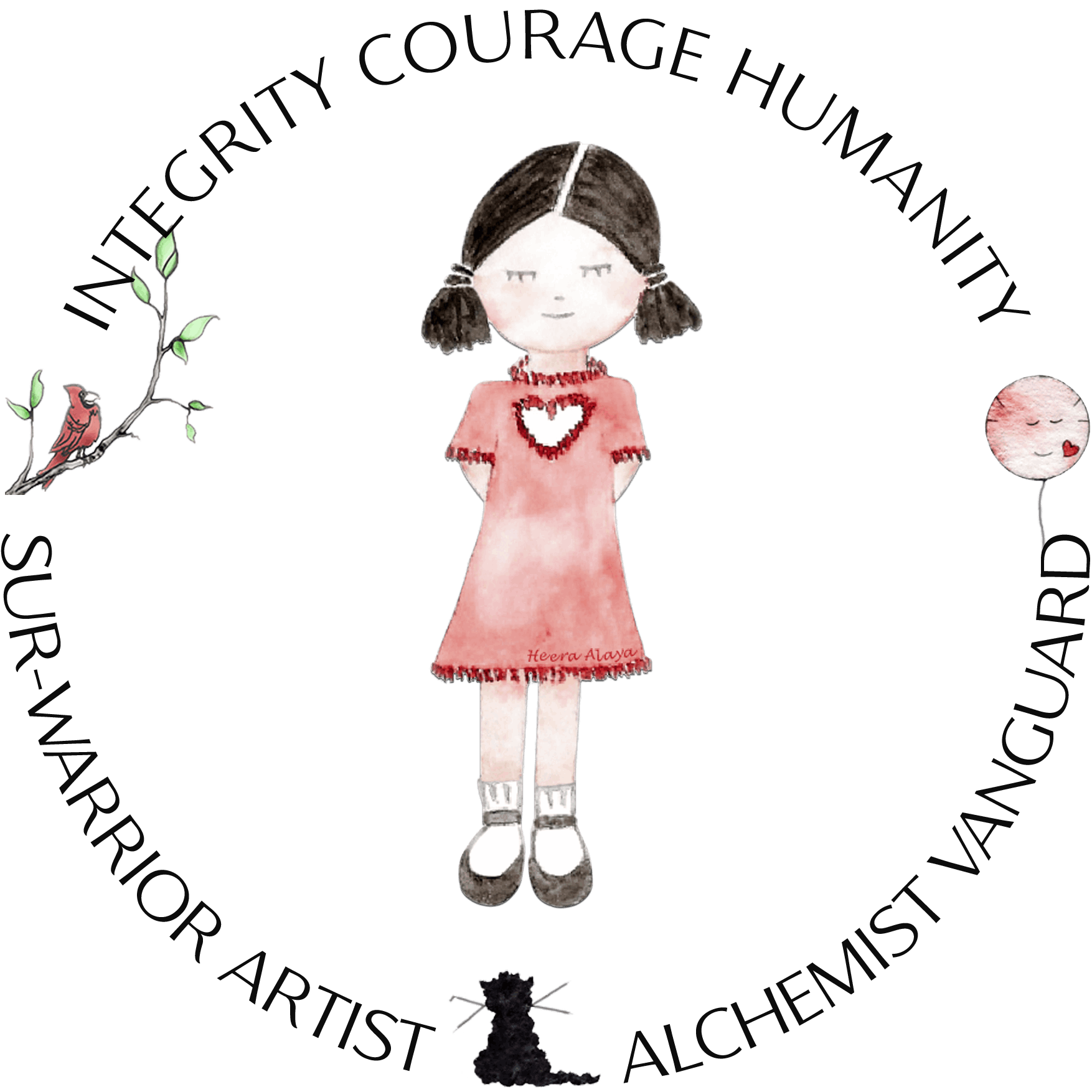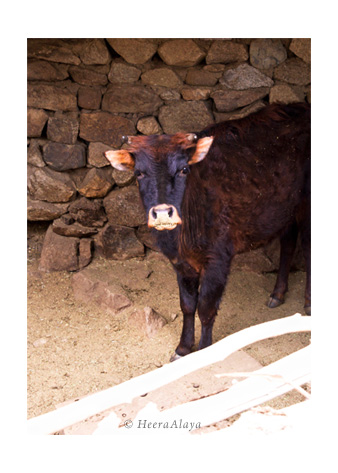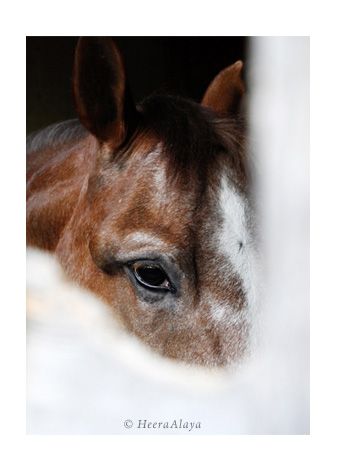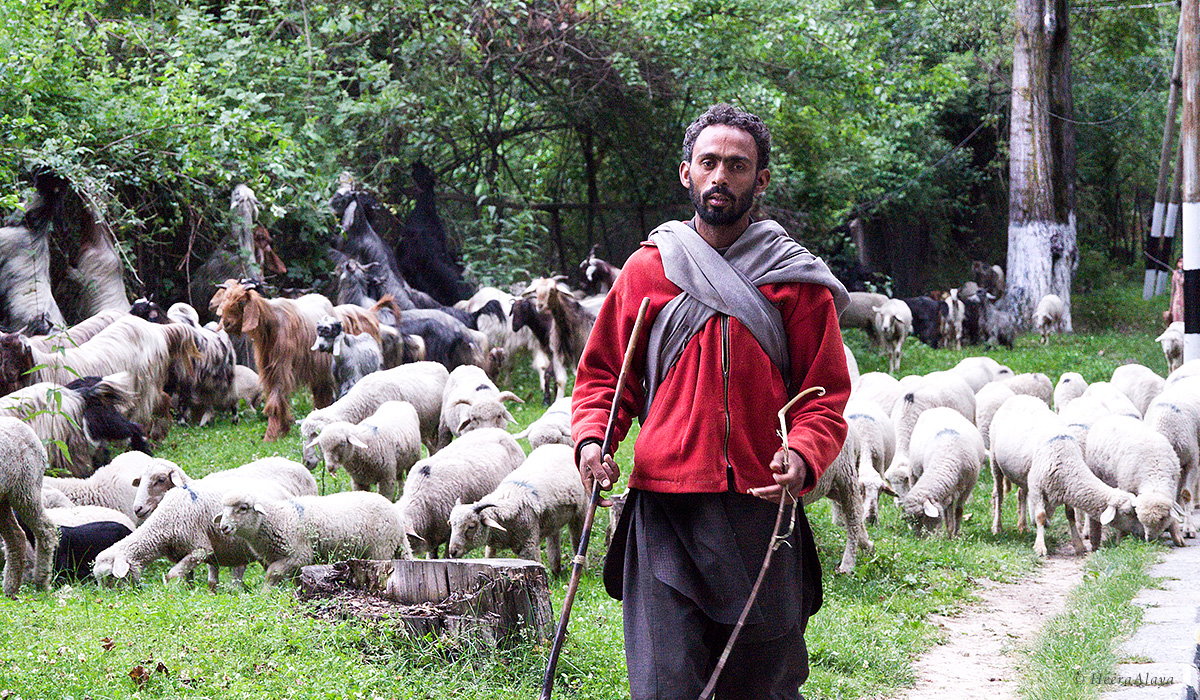
SLOW
IN HARMONY
guide to silent contemplation
By Heera Alaya
January 1st, 2021
Through the centuries, the Gujjar-Bakarwals have depended mainly upon sheep and goats for their living, travelling to the plains in the frosty winter and returning to mountainous green pastures in the summer.
From decades back, when I first encountered the nomadic Muslim tribe of Gujjar-Bakarwals, travelling en masse through Jammu and Kashmir, their simplicity pulled me closer, and more recently, where their goodness won my heart, their unique settlements designed with ecological consciousness earned my respect.
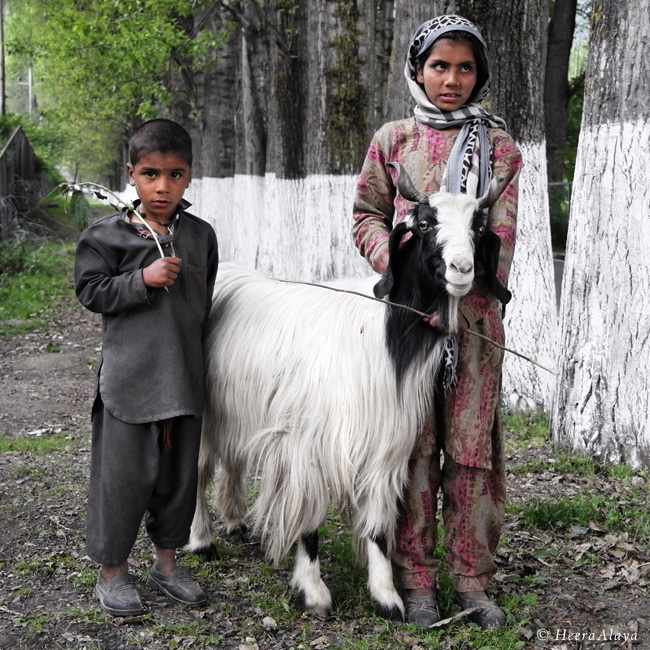
Reaching the shepherd community’s (Gujjar-Bakarwals) settlement took a long, winding drive. Framed by majestic mountains and towering trees, the Gujjar-Bakarwals flat, low homes sit openly on lush pastures adjacent to gushing streams. This tranquil destination is also home to the shepherd community’s hens, cows, horses and mules.
On the day of my visit, the shepherd family, led by a delicate frame—the mother, greeted me warmly. Our tactile interaction—the mother held my hands, guiding me into their home—conveyed decades of harsh life endured while her limpid eyes revealed her glistening soul. In a matter of seconds, the shepherd mother and her daughter had me at their rural innocence and refined aura, which I conclude must come from breathing in the purest of air in the high mountains.
The Bakarwal boys, cheerful and well-behaved, stepped into the sleeping area closest to the entrance, “This is where we sleep,” explained the younger of the two boys, enthusiastically rolling out a mattress. His sister’s pride matched his: “We make our beds when we wake up in the morning—to keep the room clean.” Patting the mattress near her seated mother, the young girl invited me: “Come, sit.”
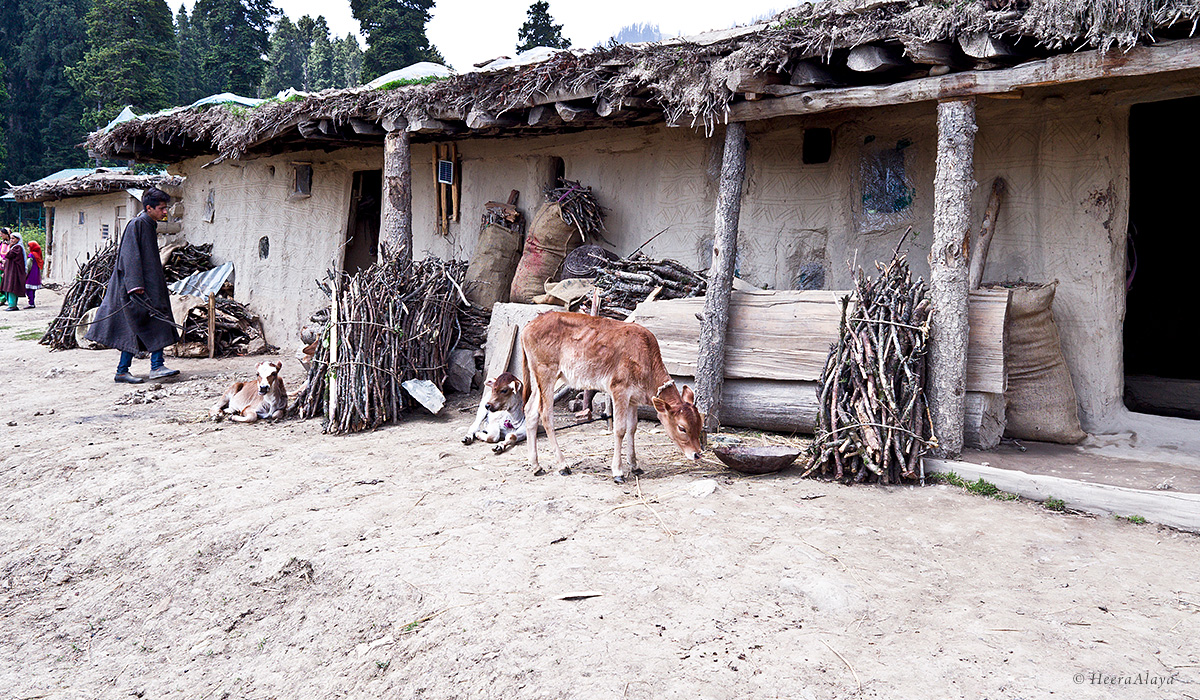
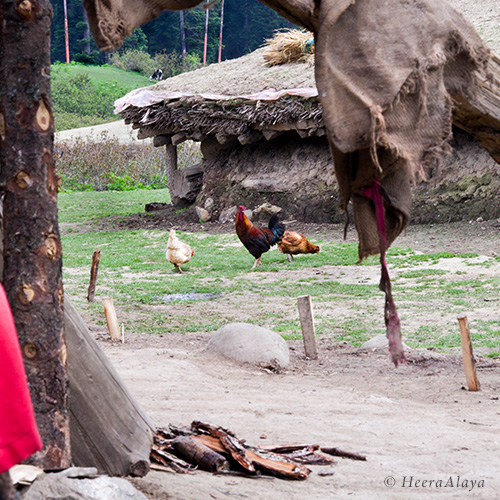
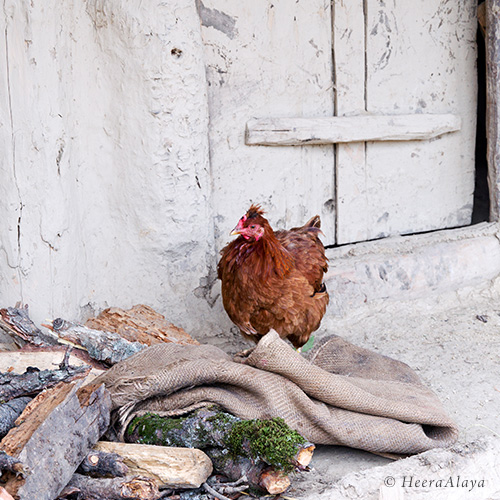
In awe of the children’s demeanour, I continued absorbing the sparse décor—woollen phiran’s [long woollen garment] hung neatly on the wall, coordinated piles of wood and undulating surfaces outfitted with shelves that store their minimal belongings. The unerring attention to detail was repeated in the dimly lit entrance that led to the indoor enclosure, joining the building, neatly tucked away toward the rear end of their home. “This area houses our horses and cows; it protects them from the cold and storms,” explained the mother.
The kitchen was tranquil, similar to the sleeping area and the animal shed. Natural light filtering through tiny windows softly lit the face of a man who sat cooking amid a motley assortment of sparkling, aesthetically arranged utensils. The calm and cleanliness with which the father was preparing the food unpeeled spiritual nourishment.
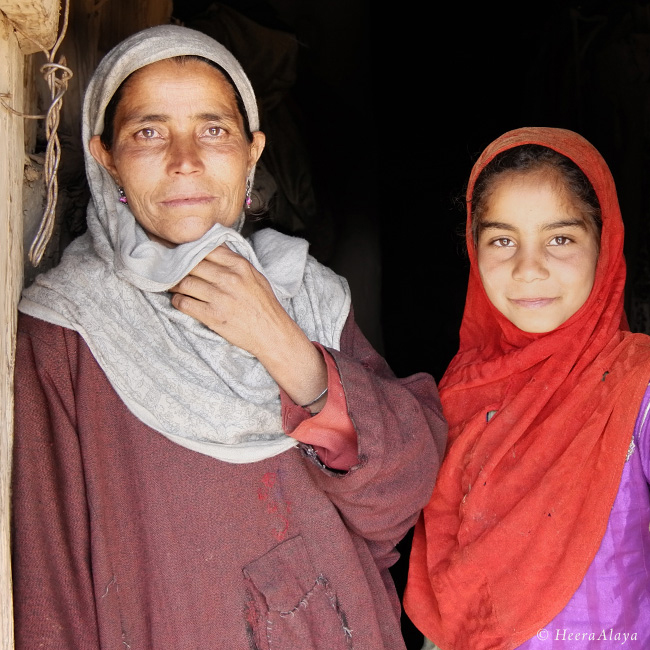
The Gujjar-Bakarwals are backward—
in terms of exposure and education—but forward
when it comes to their inherently intelligent nature,
which offers their kind spirit and hospitality.
And for all their extraordinary expressions of life,
we afford the already marginalised Gujjar-Bakarwal community few rights.
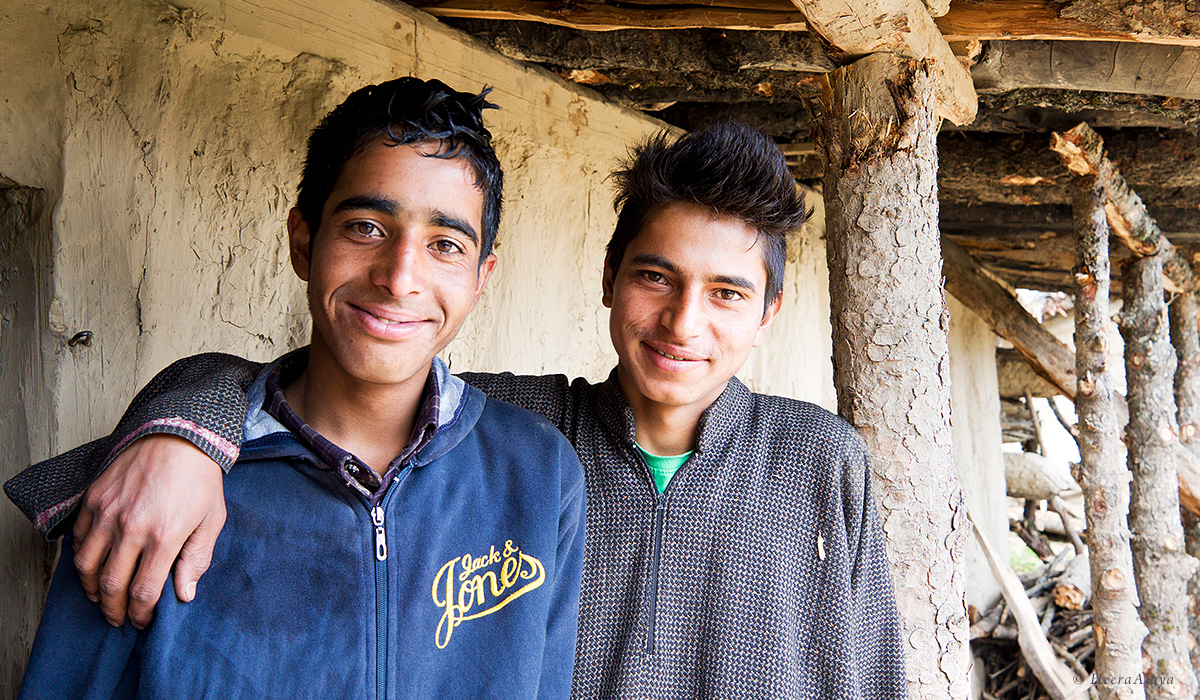
The soul-stabbing case of the Gujjar-Bakarwals daughter—
the late Asifa Bano—an 8-year-old girl who was kidnapped, drugged, gang-raped, mutilated and murdered, reveals how evil is employed to destroy this shepherd tribe. Then, as done the world over, the victims are held hostage to shame and fear through clout and might that silences. How can we allow the innocence of the Gujjar-Bakarwals to be robbed, how can we let their children be marginalised, and how can we allow their children to be used as pawns and destroyed?
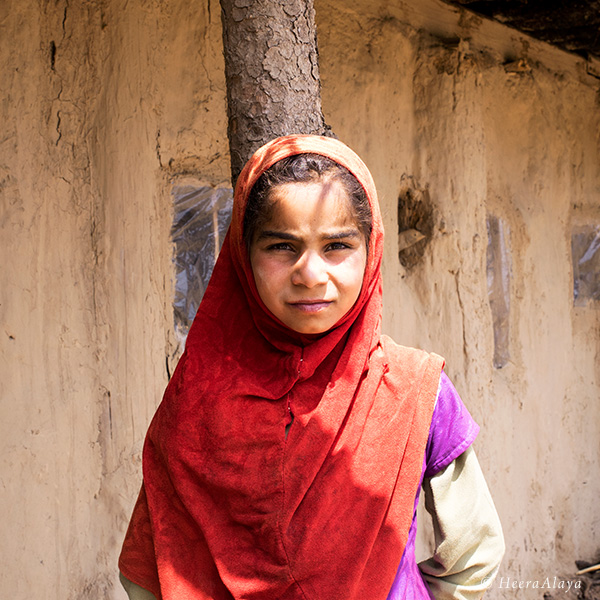
Where we have umpteen burdensome questions to ask ourselves, the Gujjar-Bakarwals offer us sincere life answers.
The shepherd family’s front yard with silently shimmering leaves and backyard with views of distant mountain peaks that are aglow, convey that the Gujjar-Bakarwals make the best of what the mountains offer. While I am humbled to have learned of the healthy relationship the Gujjar-Bakarwals have with the environment, combining minimalism with minimal impact, I couldn’t help but covet the impossibly pristine interiors. This emotionally elegant shepherd family—respectful of each other—guides me to silent contemplation—of living in harmony.
* The Gujjar-Bakarwal family insisted I eat with them, and I am glad they did—the roti [bread] alone conveys their wholesomeness.
